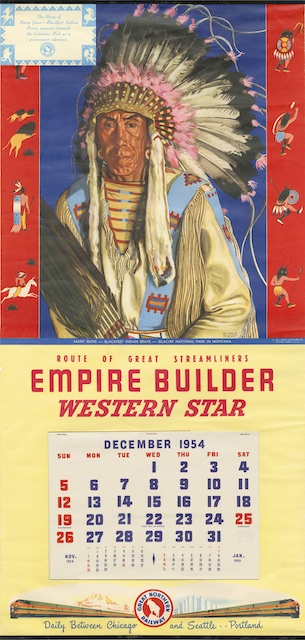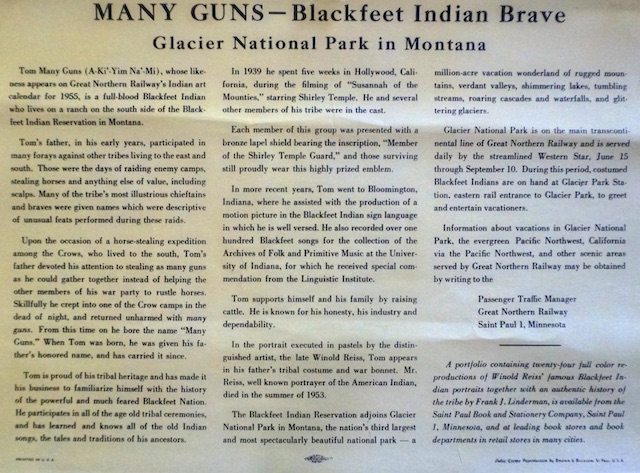During a raid on a Crow party whose main goal was to steal horses, one Blackfeet brave focused instead on stealing as many guns has he could. From then on, he was known as Many Guns, which became his family name. Tom Many Guns, the person in this painting, was his son.
 Click image to download a 3.2-MB PDF of this calendar.
Click image to download a 3.2-MB PDF of this calendar.
According to the information under the calendar pad, Tom’s life was spent in less risky pursuits, including being in a Shirley Temple movie about encounters between whites and Indians during construction of the Canadian Pacific (he isn’t included in the cast list, but someone named Tom Spotted Eagle is listed, so perhaps the names were mixed up). He also helped make a motion picture about Blackfeet Indian sign language and recorded more than 100 Blackfeet songs for the University of Indiana Archives of Folk and Primitive Music.

Click image to download a 532-KB PDF of the text underneath the calendar pad.
The information under the pad doesn’t say so, but he also wrote an autobiography called Pinto Horse Rider. At least, he was interviewed by the Blackfeet Heritage Program, which translated his spoken words into English and published the book.
According to a description of the book, he was born in 1891 and raised by his grandparents. One of the chapters tells of the construction of the Great Northern across the Blackfeet Reservation, which was done when he was a baby. (The book’s publisher says he was born in 1894, which was after the railway was completed.)
Apparently, he was mainly concerned that Blackfeet leaders believed that the railway had promised Blackfeet Indians could always ride the trains for free, which never happened. “There is nobody today who knows what the deal was,” he said. “They say that whoever made the deal got only a drink of whiskey out of it.” While that’s possible, the Great Northern had paid cash to Indians in other reservations that were crossed by its tracks.
